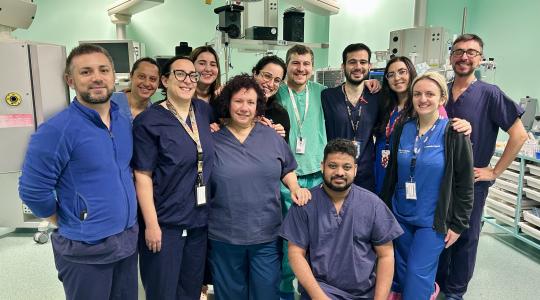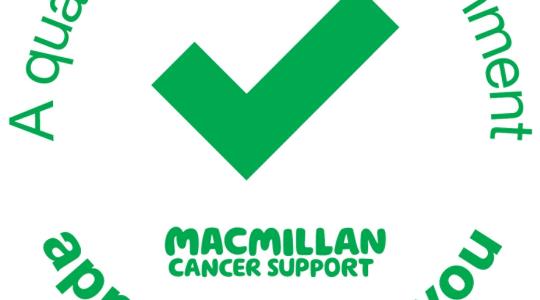New Clinical Lead for Skin Expert Reference Group
We are pleased to announce the appointment of Dr Thomas McLeod as the Clinical Lead for the Skin Expert Reference Group (ERG). Dr McLeod brings a wealth of experience as a GP in Stoke Newington with a particular passion for enhancing skin cancer care and services for patients in north east London.
As an accomplished GP, Dr McLeod’s leadership will be instrumental in driving our initiatives forward and significantly improving skin cancer care. Please join us in warmly welcoming Dr McLeod. We will be in touch in the coming weeks with more information on the skin ERG.
What are Expert Reference Groups?
Expert Reference Groups are multi disciplinary meetings which bring together relevant colleagues from across north east London to identify relevant issues and provide expert advice across the whole pathway. Read more about them on our webpage.
Understanding and Preventing Skin Cancer
Skin cancer is a serious health concern that affects many people in the UK each year. It's important to be aware of the risks and take steps to protect yourself from this potentially life-threatening disease.
What is Skin Cancer?
Skin cancer occurs when abnormal cells grow uncontrollably in the skin. There are different types of skin cancer, but the most common ones are basal cell carcinoma, squamous cell carcinoma, and melanoma. Melanoma is the most dangerous type as it can spread to other parts of the body if not detected and treated early.
The reality of skin cancer in the UK
Skin cancer is one of the most common types of cancer in the UK, with over 16,000 new cases diagnosed each year. Shockingly, around 3,500 people die from skin cancer annually in the UK alone. These numbers highlight the importance of taking proactive steps to protect your skin from the harmful effects of the sun.
Who's at risk?
While anyone can develop skin cancer, certain factors can increase your risk. People with fair skin, light hair, and blue or green eyes are more susceptible to sun damage and skin cancer. Additionally, frequent sun exposure, especially during peak hours of sunlight (10 a.m. to 4 p.m.), increases your risk. It's also one of the most common causes of death of women in their twenties.
Prevention is key
The good news is that many cases of skin cancer can be prevented by taking simple precautions to protect your skin from the sun's harmful UV rays. Here are some essential tips for preventing skin cancer:
- Use Sunscreen: Apply a broad-spectrum sunscreen with an SPF of at least 30 to all exposed skin, including your face, neck, arms, and legs. Reapply every two hours, or more frequently if swimming or sweating.
- Seek Shade: When outdoors, seek shade under a tree, umbrella, or canopy, especially during the hottest part of the day.
- Cover Up: Wear protective clothing, such as long-sleeved shirts, trousers, and wide-brimmed hats, to shield your skin from the sun.
- Avoid Tanning Beds: Tanning beds emit harmful UV radiation that can increase your risk of developing skin cancer. Opt for safer alternatives to achieve a sun-kissed glow, such as self-tanning products.
- Perform Regular Skin Checks: Check your skin regularly for any changes in moles, freckles, or other spots. If you notice any unusual changes, such as changes in size, shape, or color, consult a dermatologist promptly.
- Protect Your Eyes: Wear sunglasses that offer UV protection to shield your eyes from the sun's harmful rays.
Skin cancer is a serious health concern that affects thousands of people in the UK each year. However, by taking proactive steps to protect your skin from the sun, you can significantly reduce your risk of developing this potentially life-threatening disease.
Remember to use sunscreen, seek shade, wear protective clothing, and avoid tanning beds to keep your skin healthy and safe. By prioritizing sun safety and practicing good sun protection habits, you can enjoy the outdoors while minimizing your risk of skin cancer.
Watch our video on skin cancer prevention to find out more: https://youtu.be/S59lXrHCDYo





